If you’ve ever wondered whether oscillating heaters are good, we can confidently say you don’t have to wonder any longer. This post has been created just for you.
Oscillating heaters are a group of fascinating heating appliances armed with a mechanism that allows the heater’s upper part, entire body, or fins to move sideways, upwards and downwards, or twist and rotate in a rhythmic manner. This rotation often occurs at the upper half of the unit’s body where the heating grill is located.
In most cases, an oscillating heater comes with a forced-fan circulation mechanism that releases sufficient amounts of warm air in a room or space.
In this post, we’ll tell you all you need to know about oscillating heaters, whether they are good or not, how effective they are, how much they are sold, and how much it costs to run them.
With the right information, we believe you’ll be able to decide whether an oscillating heater is what you need or not.
Are Oscillating Heaters Good?
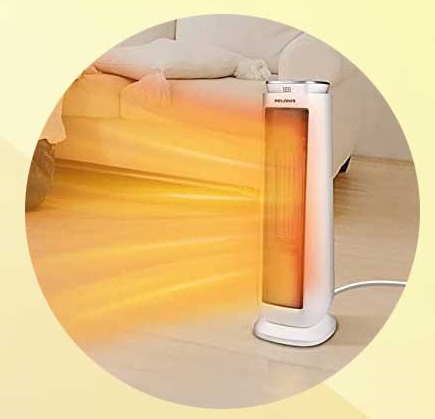
Oscillating heaters are really good. We all know that space heaters can be really helpful for supplementary heating, and can help you save a lot of money on heating costs by reducing central heating run time.
However, you’ll enjoy much more benefits if your space heater oscillates.
Oscillation provides that extra boost that the airflow needs by ensuring enhanced, quicker, and better circulation around the space.
If you’ve ever had one, you must have noticed how oscillating heaters are able to effectively disperse heated air in the room as the grills move from one direction to the other upwards-downwards or sideways.
The point is to get that heat to you no matter where you are in the room.
Does An Oscillating Heater Work Better?
Oscillating heaters work better than their non-oscillating counterparts for many reasons. The first reason is that you get to choose where to place it, depending on the kind of heater you buy.
If you purchase a portable version, you can easily take it with you everywhere to keep you warm. You can situate the large tower oscillating heater to work for larger spaces and wider areas while using the small heaters for small rooms or offices.
Also, the fact that it oscillates stands as one of its most important benefits. You don’t have to depend on nature to help move the air around the room; the fan has got it covered.
Many of the latest designs have thermostats that can be manually controlled to deliver a certain amount of heat. Oscillating heaters also boast of more efficiency and power compared to some other heaters and air conditioners.
What Is the Cost Of Oscillating Heaters?
Oscillating heaters can range anywhere between $25 and $100 depending on the size of the heater, its distribution capacity, and other features. For instance, a portable 2-in-1 Oscillating Heater that comes in either 1500W/750W costs between $25 and $40.
On the other hand, a 1500W large room tower oscillating space heater with 12H Timer, Adjustable Thermostat, 70°/80°Oscillating, and several heat protection features has a price range of $100 to $120.
The popularity of the brand also contributes to the cost, as you can be sure that brands popular for their quality will be on the more expensive end.
Below listed are some of the best oscillating heaters with a reasonable cost range:
- PELONIS PHTPU1501 Ceramic Tower Oscillating heater
- Portable 2 in 1 Ceramic Oscillating Electric Room Heater
- Dreo Portable Space Heater for Indoor Use
- Lasko Bladeless W/Remote Space Heaters
How Much Does It Cost to Run Oscillating Heater? Is It Cheap to Run?
Running a 1,500W oscillating heater will cost an average of $0.20 per hour, $4.80 for a day, $11.20 weekly, and $48.00 monthly if your electricity supply is charged at $0.1319 for every Kilowatt. You might spend half the amount or a little less to run a 750W oscillating heater. This price range is considered reasonable for heating your home.
The simple calculation to guide you is Cost of heating per hour=Power (by watt) times price of electricity (per Kwh)/1000. It is important to note that the running cost for your oscillating heater will depend on several factors, including the power of the heater, the heat setting in use, the running time, and the cost of electricity per watt where you live.
The running cost of your oscillating heater is dependent on two factors; price of electricity and heater wattage.
Price of Electricity
The United States has a national average price of $0.1319 per kilowatt-hour, and that’s the price you should use for your calculations, plus or minus a few cents because some states are a few cents cheaper and some are more expensive.
Heater wattage
The watt is primarily a measure of the strength of the heater, and while most space heaters run on 1500 watts of electricity, a few others use 1000 and 750 watts of energy.
When you know the watts of your oscillating heater and the cost of electricity in your area, you can calculate the running cost of your heater per hour.
Running cost for a 1000-watt heater
To get the running cost of a 1000-watt heater for 24 hours, simply multiply the power (1000 W) by the price of electricity ($0.1319 per kWh) by the number of running hours (24 hours).
Then, you divide the result by 1000. What you’ll get is $3.17 for 24 hours.
You can multiply this result with any number of days, weeks, or months you’re calculating, as well as whatever heater wattage you use.
Running cost for a 5,000W Electric Heater
So, what if you have a massive 5,000W electric heater in your home? You’re dealing with a large heating output, which also translates to more cost for you while producing a lot more heat.
The calculation for the running cost per hour will be 5000W multiplied by $0.1319 per kWh, and then divided by 1,000. It will amount to $0.66 per hour. This is five times the amount you will spend when using a 1000-watt oscillating heater.
If you’re running your standard 1,500 watts oscillating heater every hour of the day for one month, then you’re looking at 24 hours multiplied by 30 days, which amounts to 720 running hours.
That means, you have running hours of 240 hours, 300 hours, or 360 hours. Although that’s a lot of hours, the good thing is that you won’t run your heater throughout the day. You’ll either run it for 8 to 10 hours, or a maximum of 12 hours.
For a 24/7 heating arrangement, you can calculate the heating cost by multiplying 720 hours by $0.1319 per kWh and dividing by 1,000. What you’ll get is $142.45 per month.
Now that we have the explanation all figured out, here’s a table guide to help you gauge the running cost for your oscillating heaters.
| Heater Wattage | Running Cost Per Hour | Running Cost per day |
| 750 Watts | $0.10 | $2.40 |
| 1,000 Watts | $0.13 | $3.12 |
| 1,500 Watts | $0.20 | $4.80 |
| 2,000 Watts | $0.26 | $6.24 |
| 3,000 Watts | $0.40 | $9.60 |
Final Words:
Oscillating heaters are good for your home, office, and immediate environment, whether they are portable or large. They are more flexible than many heaters for cooling and heating, easy adjustment, and comfortable management.
If you’re considering purchasing oscillating heaters, you’re making the right decision because they are affordable, efficient, and they don’t add too much to your home electricity cost.
| Photo | Title | Buy |
|---|---|---|

|
LEVOIT Air Purifier for Home & Bedroom - For Allergies and Pets Hair | Check Price On Amazon |

|
BREEZOME 60 OZ Quiet Dehumidifiers for Home, Dual-Semiconductor | Check Price On Amazon |
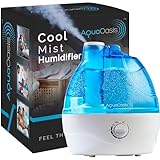
|
AquaOasis™ Cool Mist Quiet Ultrasonic Humidifier for Bedroom & Large room | Check Price On Amazon |

|
43.3'' Portable Air Conditioners, 3-IN-1 Evaporative Air Cooler w/Remote | Check Price On Amazon |

|
BlueDri BD-AS-550-BL Negative Machine Airbourne Cleaner HEPA Air Scrubber | Check Price On Amazon |

|
Space Heater, VCK 24" 12ft/s Fast Quiet Heating Portable Electric Heater | Check Price On Amazon |
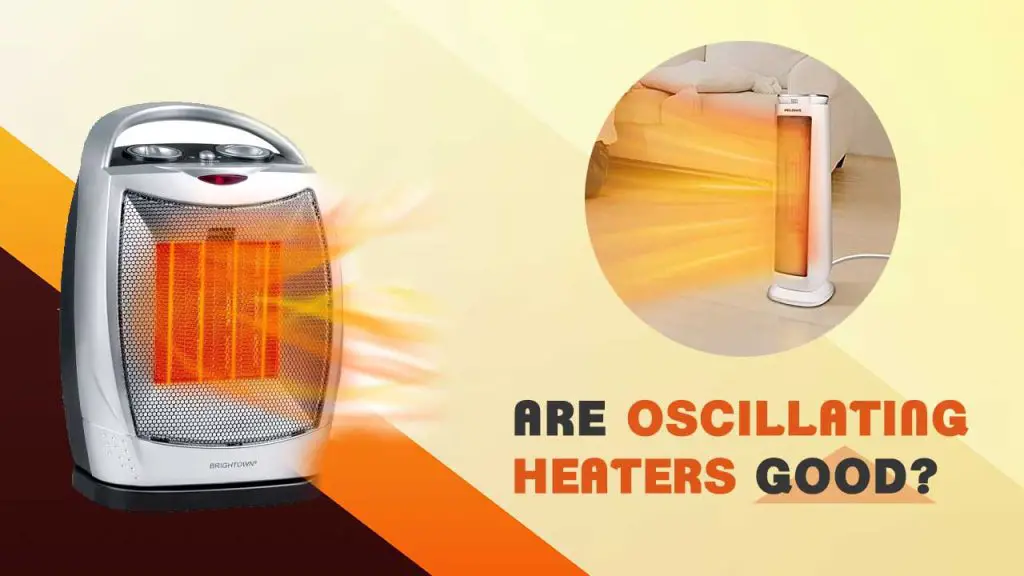
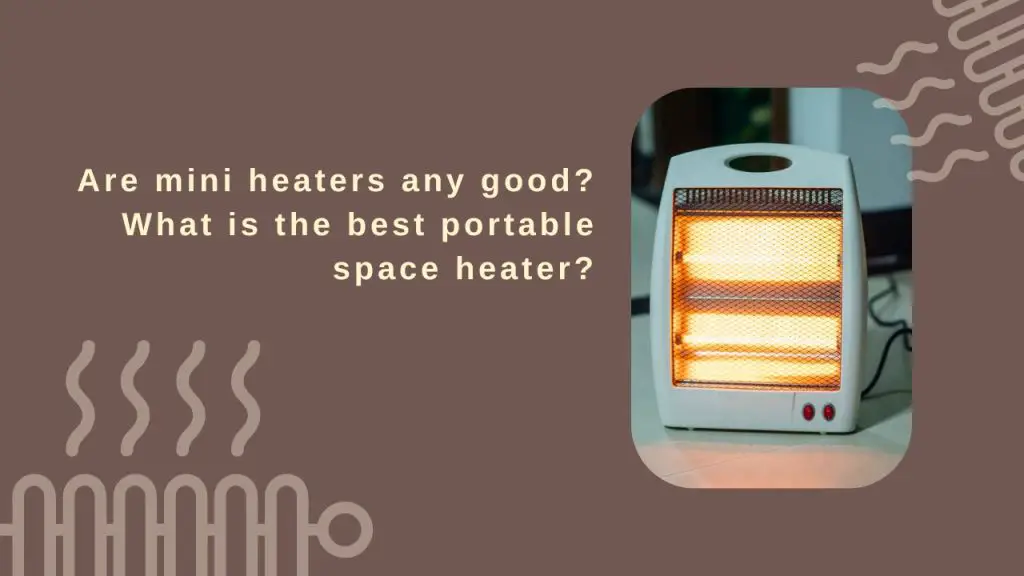
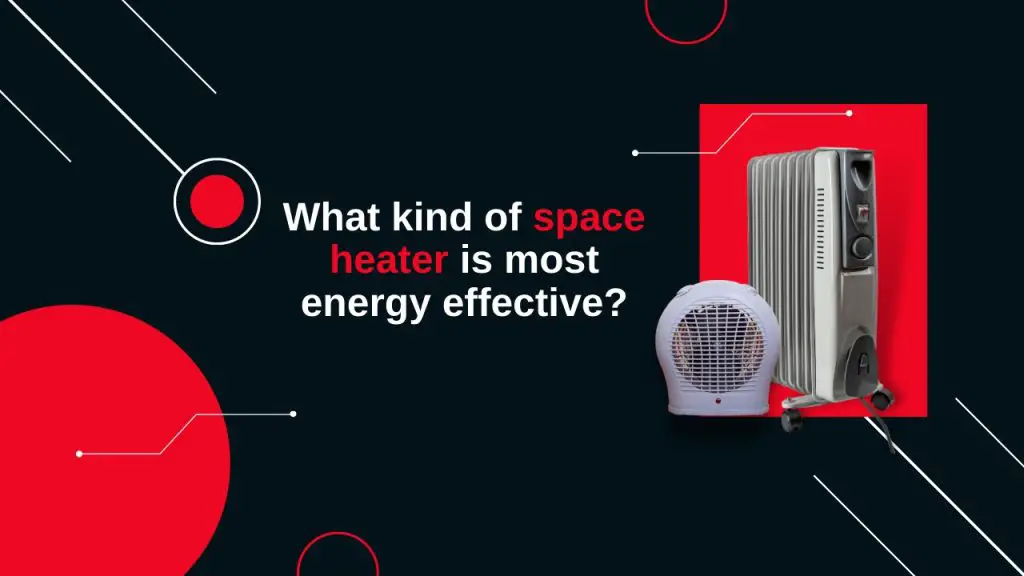
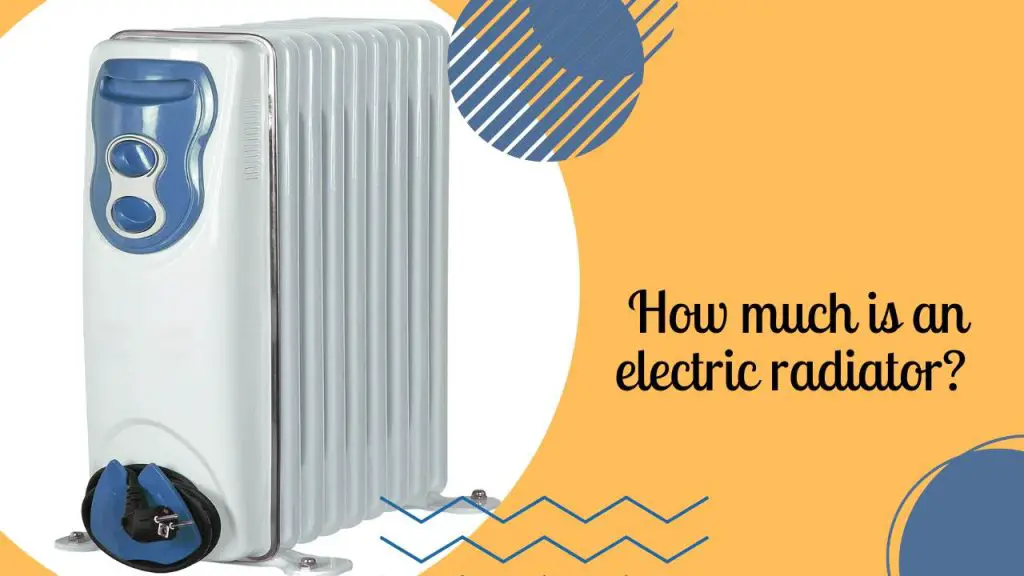
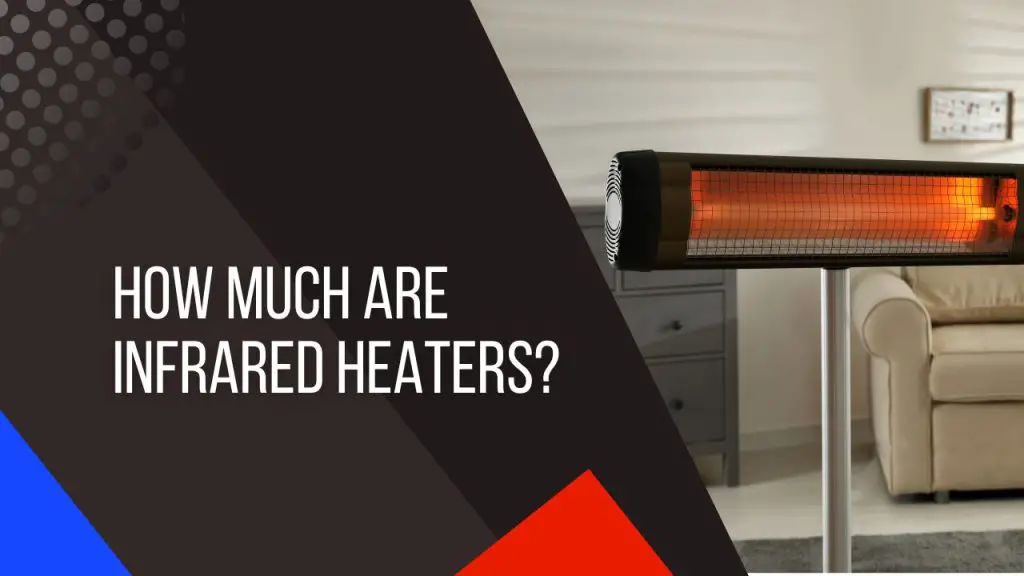
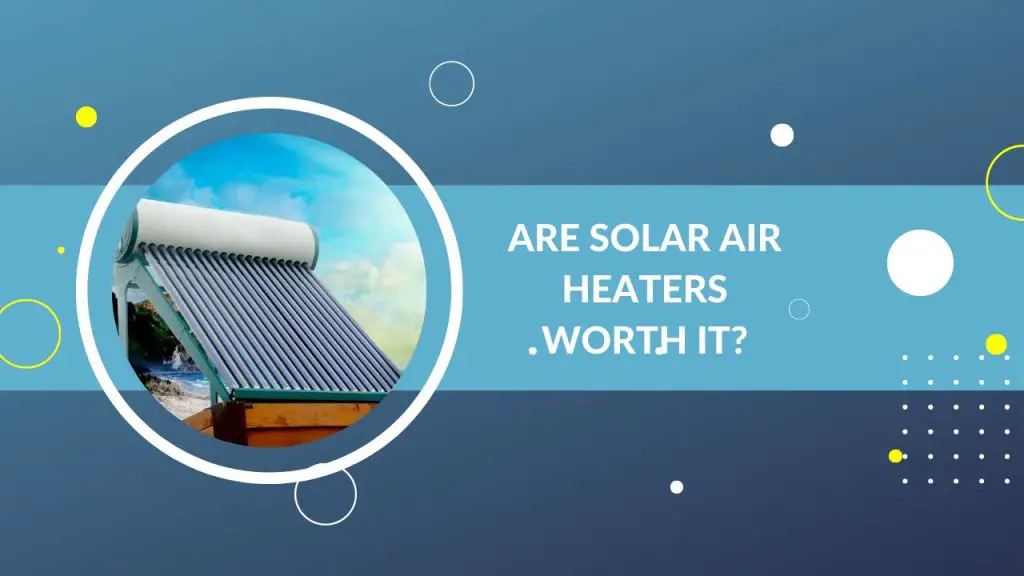
![Ventless Heater Moisture Problems [Possible Reasons & Solution]](https://www.airpurelife.com/wp-content/uploads/2022/12/Why-do-ventless-heaters-create-moisture-1024x576.jpg)